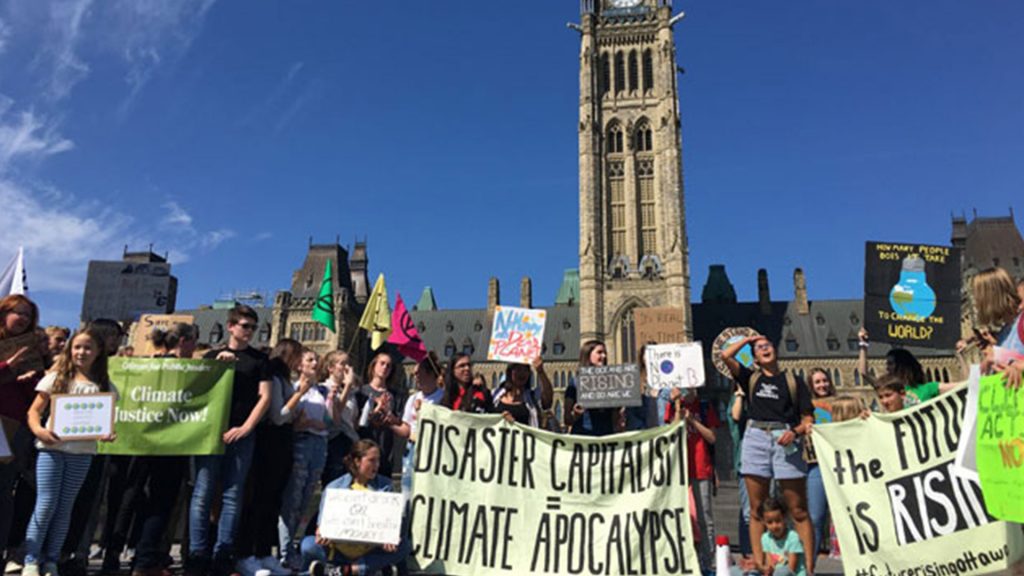
A protest on Parliament Hill in 2022 to get the federal government to act on the climate crisis. Photo: APTN.
People in Canada should expect higher than normal temperatures across the country until the end of August because of the climate crisis say federal officials.
“Climate change is already affecting the frequency, duration and intensity of extreme weather- and climate-related events in Canada,” said a statement from Environment and Climate Change Canada Tuesday.
“Climate models indicate the country is warming at roughly double the global rate, especially in the North, which will lead to more damaging weather events.”
Since the beginning of June, a number of jurisdictions in Canada have experienced hundreds of wildfires that are being spurred on by dry, hot weather, according to the department.
In Alberta, an early fire season meant the evacuation of communities across the north. On Monday, the Little Red River Cree Nation posted a statement on social media stating that fire officials were still working to control a fire around Fox Lake. Fort Chipewyan is currently working on a plan to bring home hundreds of people.
Crews in Quebec are still fighting dozens of fires across the province. The people living in two Innu communities in the eastern part of Quebec are now allowed back home.
“Throughout the summer, higher temperatures are expected to persist in these regions, as well as in the rest of Ontario and Quebec, British Columbia, and Atlantic Canada,” said Environment Canada.
“In anticipation of a warmer, drier summer and its associated severe conditions, Canadians are urged to regularly monitor weather forecasts, take all weather alerts seriously, and get prepared for weather-related events by developing an emergency plan.”
Read More:
On top of a hotter, dryer summer, the government said some regions of Canada can expect “more intense rainfalls” including urban areas and along the coasts “due to local sea-level rise.”
“The average intensity of hurricanes is also expected to increase, though an increase in the total number of tropical cyclones is not expected,” said the government.
In anticipation of more severe weather, the federal government announced an “adaptation plan” in January 2023 to help communities get through weather-related crises. The plan includes $1.6 billion to “protect communities from coast to coast.”
The money will go towards constructing roads, buildings and bridges to better withstand flooding, improving communication during wildfires, and working with “Indigenous communities on the development of region-specific health initiatives linked to changing climate conditions.”
It also includes $284 million over five years to help reduce the risks associated with wildfires that “enhance community prevention and mitigation activities, support innovation in wildland fire knowledge and research, and establish a Centre of Excellence for Wildland Fire Innovation and Resilience, among other things.”
While the federal government is encouraging people to take action on climate change and spending billions to control it, the Liberals also purchased the Trans Mountain Pipeline in 2018 at a cost of $4.5 billion to transport tarsands bitumen to the B.C. coast. Fossil fuels are one of the leading causes of climate change.









